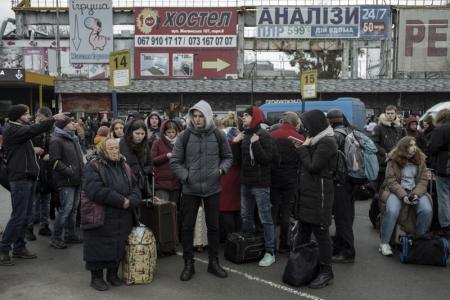Ukraine battles Russian invasion, thousands flee fighting
KYIV/MARIUPOL, UKRAINE (REUTERS) - Ukrainian forces battled Russian invaders on three sides on Thursday (Feb 24) after Moscow unleashed the biggest attack on a European state since World War II, prompting tens of thousands of people to flee their homes.
After Russian President Vladimir Putin declared war in a pre-dawn televised address, explosions and gunfire were heard through the day in Uraine’s capital and elsewhere in the country, with at least 137 people reported killed.
The assault brought a calamitous end to weeks of fruitless diplomatic efforts by Western leaders to avert war over Russian demands for a redrawing of post-Cold War security arrangements in Europe.
"This is a premeditated attack," US President Joe Biden told reporters at the White House as he unveiled harsh new sanctions, coordinated with allies, against Russian banks, oligarchs and state companies.
"Putin is the aggressor. Putin chose this war. And now he and his country will bear the consequences."
In his address, Putin said he had ordered "a special military operation" to protect people, including Russian citizens, subjected to "genocide" in Ukraine – an accusation the West calls baseless propaganda.
"And for this we will strive for the demilitarisation and denazification of Ukraine," Putin said.
After nightfall, a picture was emerging of fierce fighting across multiple fronts. President Volodymyr Zelenskiy late on Thursday ordered a general mobilisation, to be carried out within 90 days, "to ensure the defence of the state".
An adviser to the Ukrainian presidential office said Russian forces had captured the Chernobyl former nuclear power plant, just 90km north of Kyiv.
The plant is along the shortest route from the Ukrainian capital to Belarus, where Moscow has staged troops.
There was also fighting at Hostomel airport, just outside Kyiv, where Russian paratroopers landed. A Ukrainian official later said the airfield had been recaptured, while a senior US defence official said Russian forces were advancing closer to Kyiv.
Heavy exchanges of fire were also reported in the regions of Sumy and Kharkiv in the north-east and Kherson in the south.
The highway heading west out of Kyiv was choked with traffic across five lanes as residents fled, fearful of bombardments while stuck in their cars.
The UN refugee agency said an estimated 100,000 Ukrainians had fled their homes and that several thousand crossed into neighbouring countries, mainly Romania and Moldova.
Some 57 people were killed and 169 were wounded on Thursday, Ukraine’s health minister said, while the interior ministry said 13 border guards died when a Russian vessel shelled Ukraine’s Zmiinyi Island, south of the Black Sea port of Odessa.
'New iron curtain'
The day had begun with missiles raining down on Ukrainian targets and authorities reporting columns of troops pouring across the borders from Russia and Belarus to the north and east.
President Volodymyr Zelensky called on Ukrainians to defend their country and said arms would be given to anyone prepared to fight.
"What we have heard today are not just missile blasts, fighting and the rumble of aircraft. This is the sound of a new Iron Curtain, which has come down and is closing Russia off from the civilised world," Zelensky said.
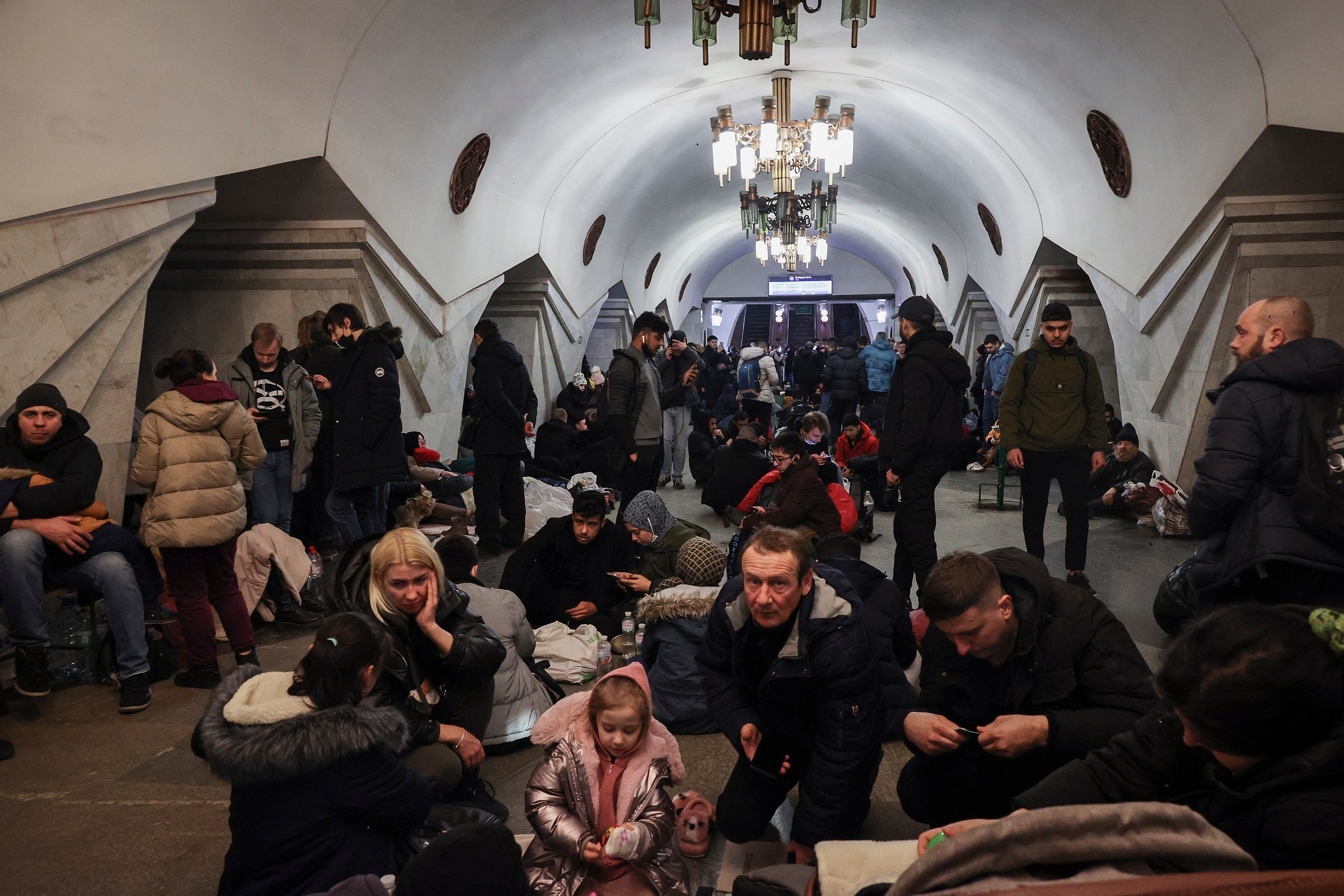
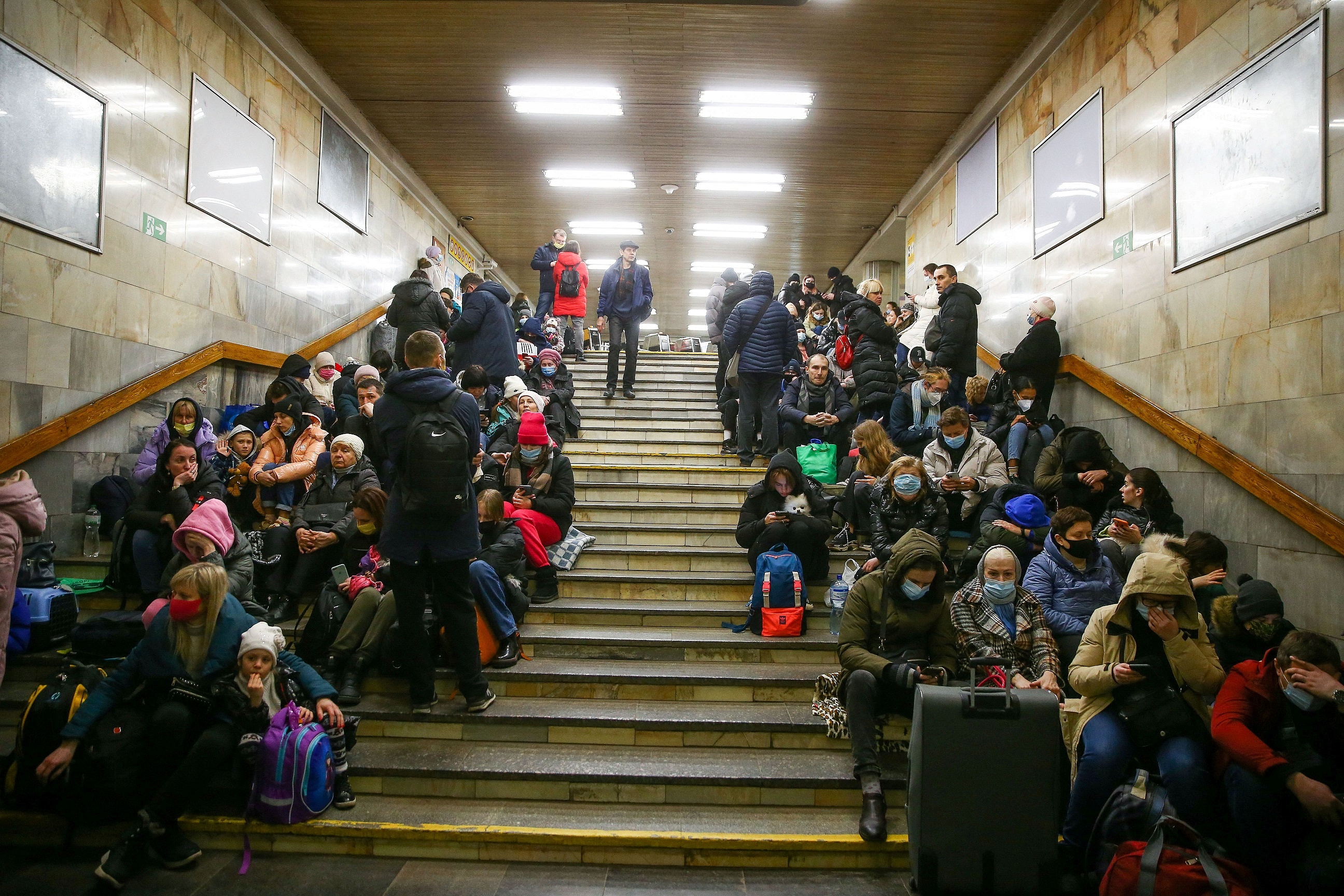
Putin, after referring earlier in his speech to Russia’s powerful nuclear arsenal, warned: "Whoever tries to hinder us... should know that Russia’s response will be immediate. And it will lead you to such consequences that you have never encountered in your history."
Asked whether that threat was tantamount to threatening Russian use of nuclear weapons, Foreign Minister Jean-Yves Le Drian said it was indeed understood as such, adding that Putin should also understand that Nato was a nuclear alliance.
Biden has ruled out sending US troops to defend Ukraine, but Washington has reinforced its Nato allies in the region with extra troops and planes.

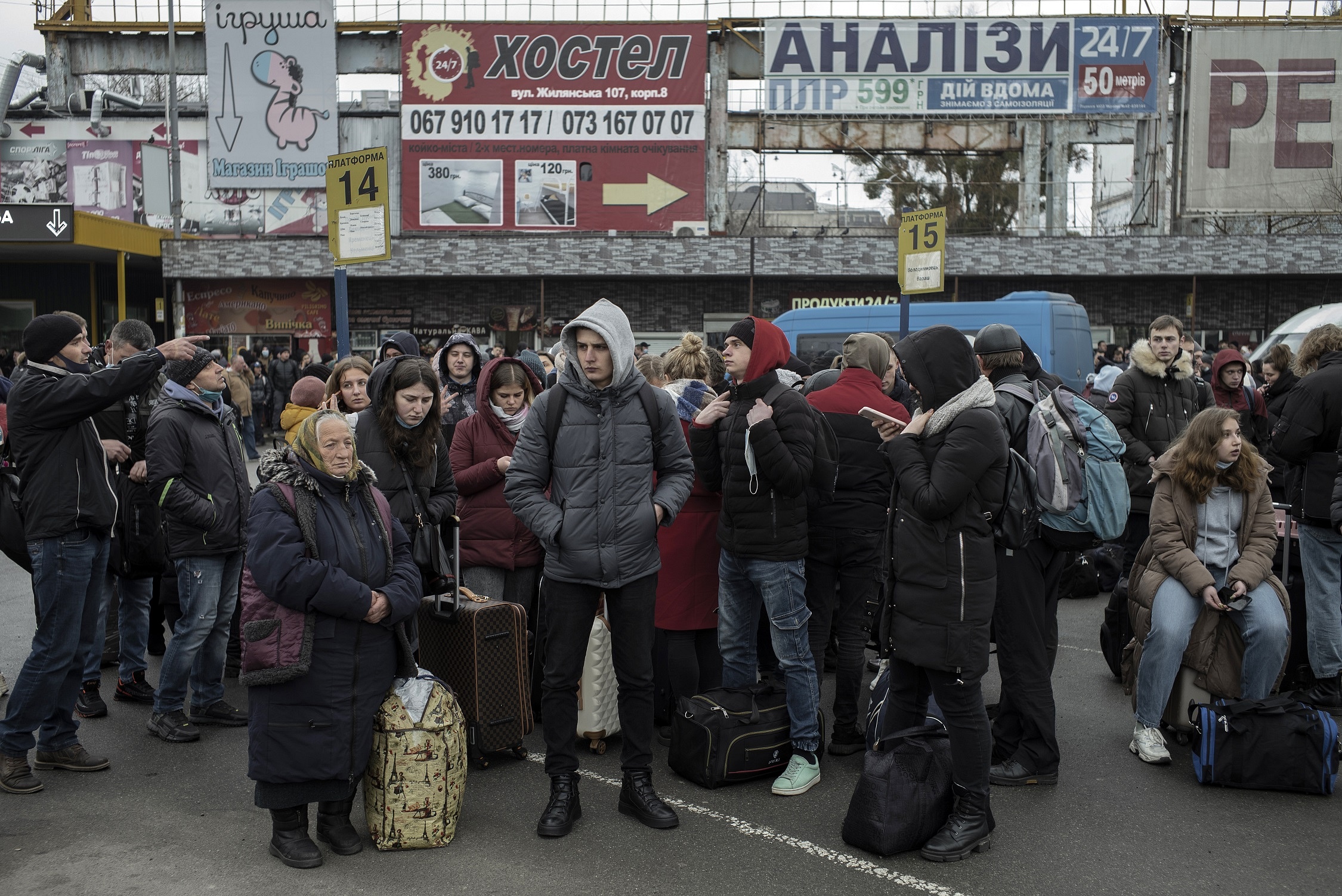
After consulting counterparts from the Group of Seven leading industrialised nations, Biden announced measures to impede Russia's ability to do business in the world's major currencies, along with sanctions against banks and state-owned enterprises.
Britain also targeted banks, along with members of Putin's closest circle and super-rich Russians who enjoy high-rolling London lifestyles.
European Union leaders said measures would include freezing Russian assets in the 27-nation bloc, halting banks' access to European financial markets and hitting "Kremlin interests".
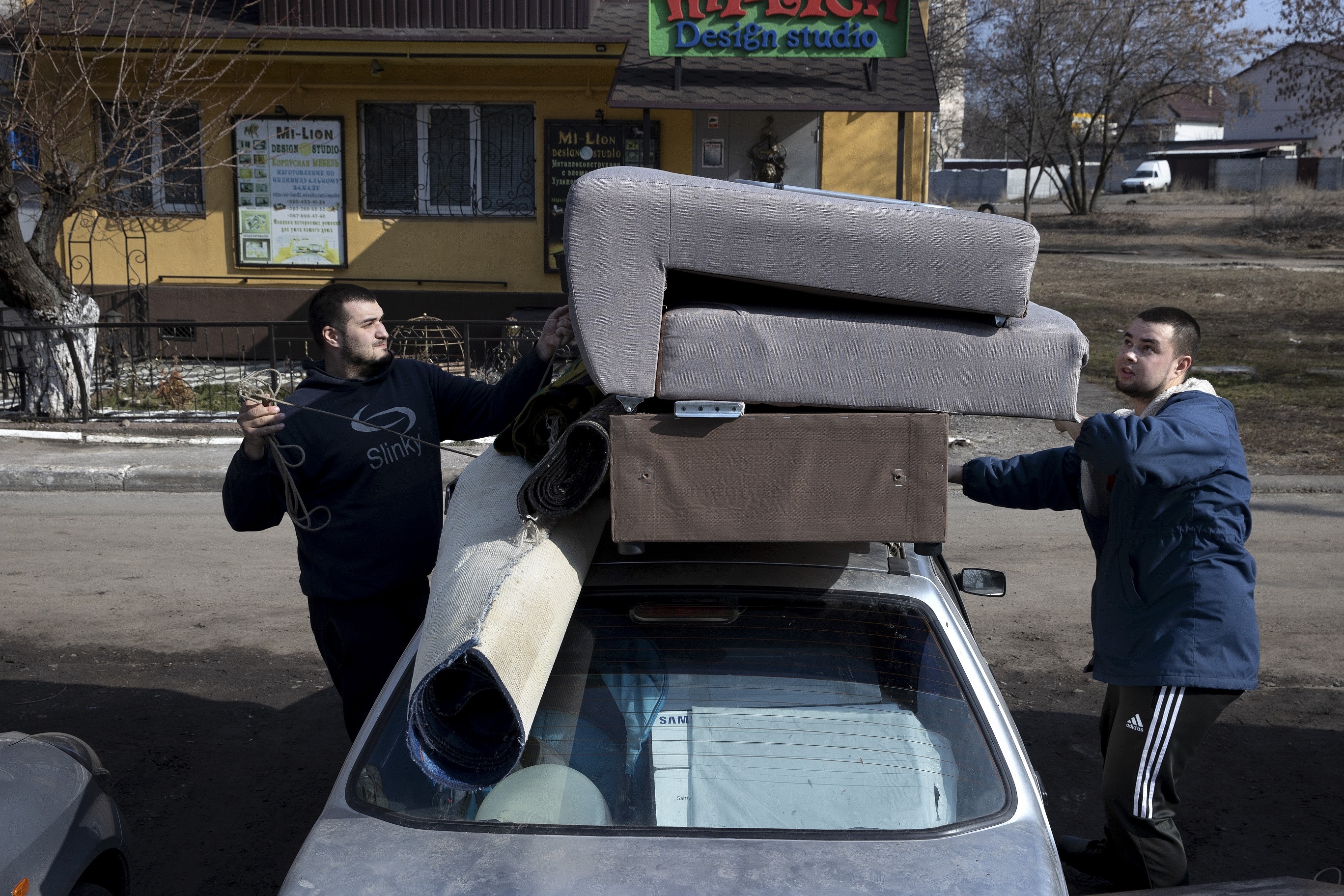
China remained out of step, however, rejecting the description of Russia's actions as an "invasion".
Russia is one of the world's biggest energy producers, and both it and Ukraine are among the top exporters of grain. War and sanctions will disrupt economies around the world already facing a supply crisis as they emerge from the coronavirus pandemic.
European stocks dived to nine-month lows, but US stocks ended higher after Biden’s sanctions announcement. Brent oil earlier surged past US$100/barrel for the first time since 2014.
'Hang them from bridges'
Putin said he did not plan a military occupation, only to disarm Ukraine and purge it of nationalists, and his endgame remains unclear.
The senior US defence official said Washington believed the invasion was intended to "decapitate" Zelensky’s government. But it is hard to see Ukrainians accepting leadership installed by Moscow.
"I think we must fight all those who invade our country so strongly," said one man stuck in traffic trying to leave Kyiv. "I would hang every single one of them from bridges."
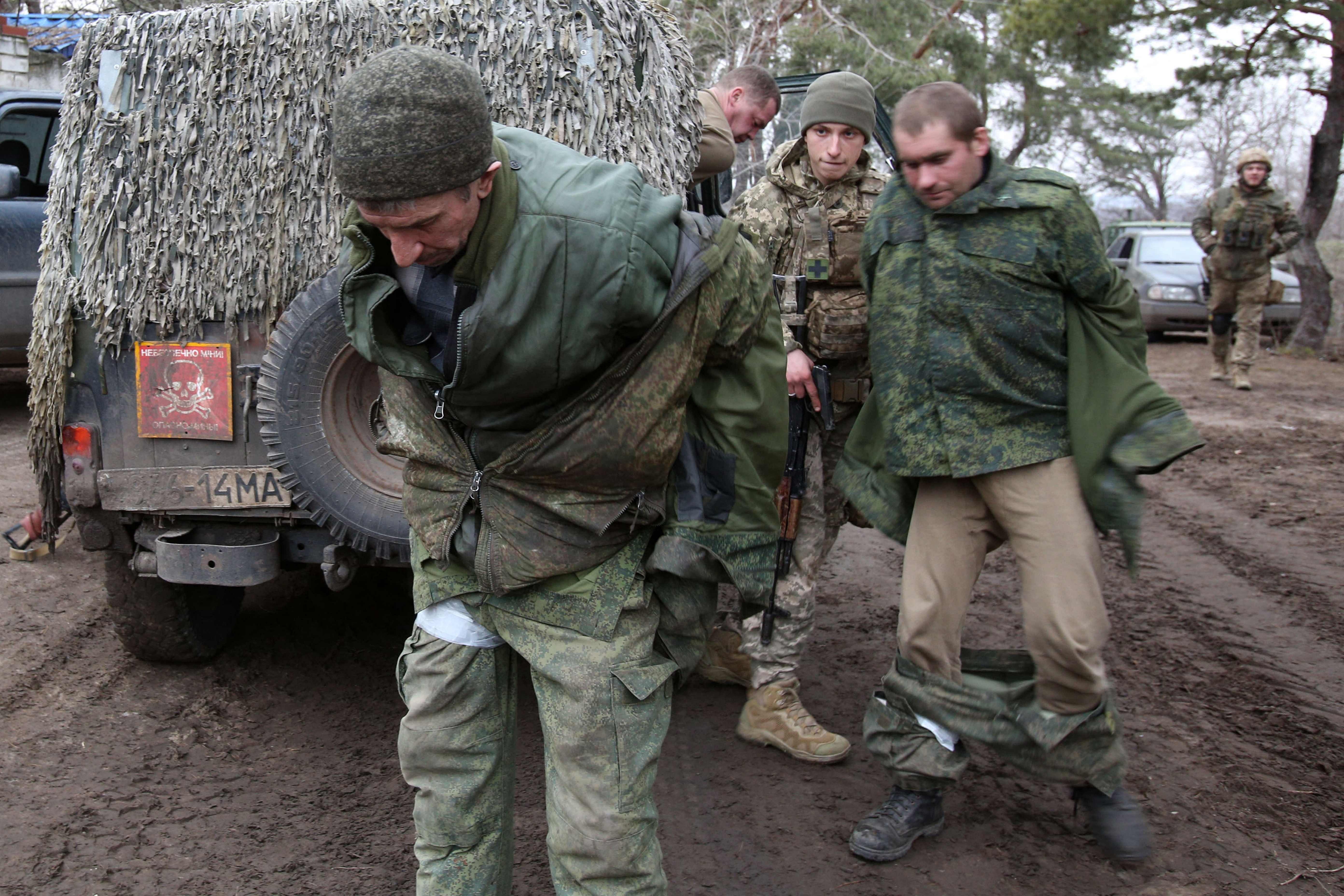
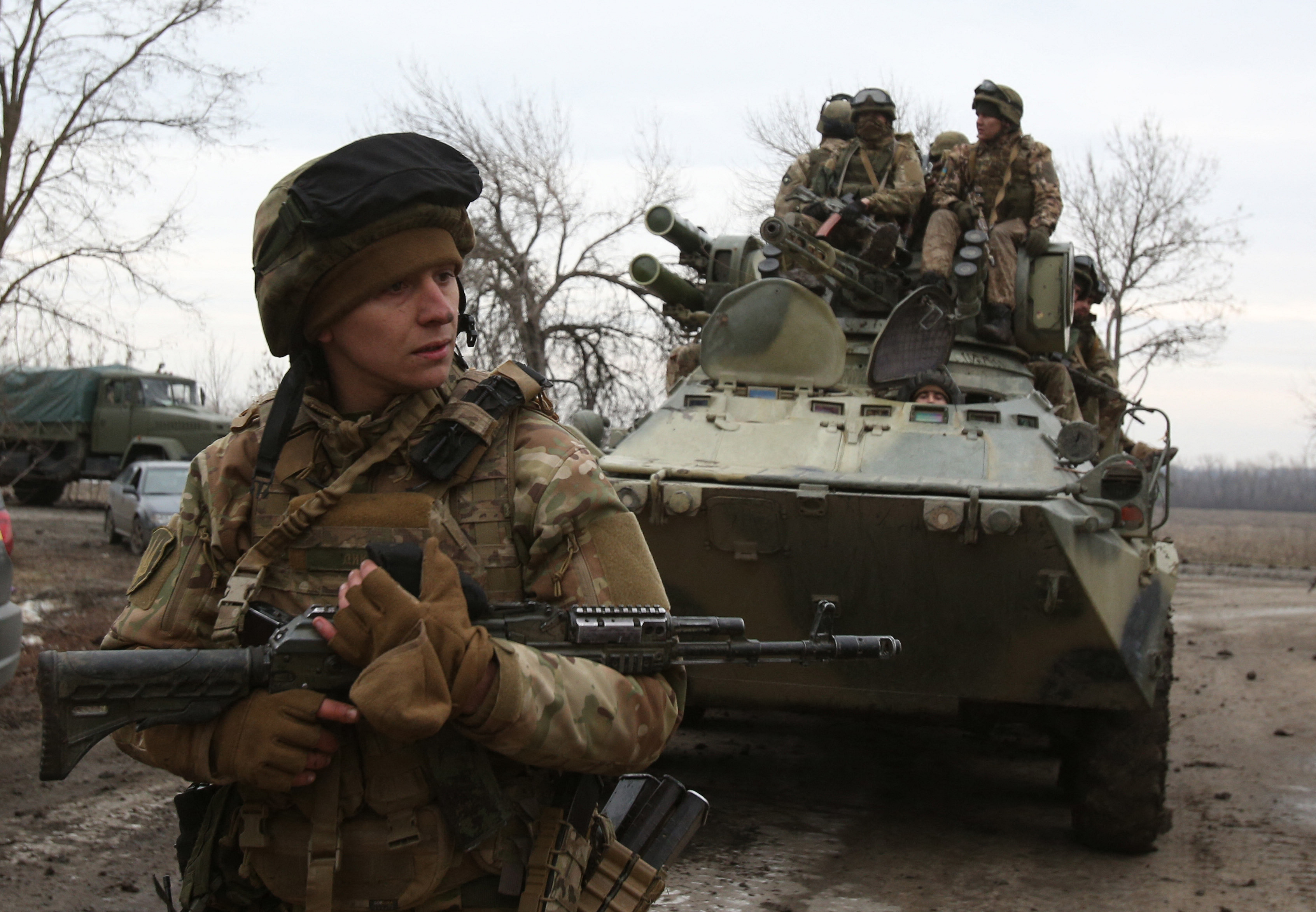
A democratic nation of 44 million people, Ukraine is Europe’s biggest country by area after Russia itself.
It voted for independence at the fall of the Soviet Union and has recently stepped up efforts to join Nato and the European Union, aspirations that infuriate Moscow.
Putin, who denied for months that he was planning an invasion, has called Ukraine an artificial construct carved from Russia by its enemies – a characterisation Ukrainians see as an attempt to erase their more than 1,000-year-old history.
While many Ukrainians, particularly in the east, speak Russian as a native language, virtually all identify themselves as Ukrainian.
There was also some dissent in Russia. Police detained more than 1,600 taking part in anti-war rallies in 53 cities and authorities threatened to block media reports carrying "false information".
In the south-eastern port of Mariupol, near a frontline held by Russian-backed separatists in eastern Ukraine, local authorities said 26 people were wounded in shelling. Civilians packed bags.
"We are going into hiding," a woman said.
Ukraine’s ambassador to the United States, Oksana Markarova, said its forces had downed two Russian helicopters and seven other Russian aircraft and destroyed several Russian trucks, and a platoon from Russia’s 74th Motor Rifles Brigade had surrendered.
Russia’s defence ministry said it had destroyed 83 land-based Ukrainian targets and had achieved all its goals, according to Interfax news agency.
Protests against Russia’s invasion were held in Europe and the United States.
At a demonstration in New York’s Time Square, Ivana Lotoshynski, who was born in Ukraine, urged solidarity with Ukrainians.
"People are losing their lives right now. Ukrainians are fighting against this regime from Russia and it’s really devastating," she said. "Today I think everybody is Ukrainian."
Get The New Paper on your phone with the free TNP app. Download from the Apple App Store or Google Play Store now

